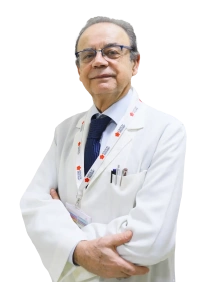Pathology
What is Pathology?
Pathology is a discipline which investigates functional and structural changes in cells, tissues and organs with different methods. Pathology is often associated with cancer, and it is of great importance for human health. Pathology results reveals the diseases and help to make a definitive diagnosis. Pathology discipline does not only deal with human but also animals. Physicians who perform all these procedures are called pathologists.
Pathologists don’t take care of patients directly and they don’t see the patients in general. Depending on the patient's complaint, the physician in the outpatient clinic may request such an examination. After this stage, a sample is taken from the organ or tissue to be examined and sent to pathology. Here, pathologists complete their in-depth, microscopic examination, and then prepare their reports after detailed evaluations. Pathology result shows exactly how well the cells perform their functions and the changes having occurred in these cells.
Devices in the pathology department of our hospital ensure reliable results. Besides the devices, our pathologists at our hospital have academic career in their fields. Considering all these advantages, the data contained in the pathology report you will receive from our hospital helps the diagnosis of diseases.
How is Pathological Examination Performed?
In order to make a pathological examination, the physician should make the request first. For making the definitive diagnosis, a sample is taken from the relevant tissue with different methods for the desired pathology and these samples are sent to pathology department. Biopsy is the most important method to take the relevant tissue sample. Samples can also be taken during the surgery. Taking the samples of body fluids such as sputum and blood and similar body fluids are the other methods. Here, cells in the tissue sample are examined by means of advanced microscopes and a pathology report is prepared according to the examinations.
There are different systems for pathology tests. Among these systems, the ones approved by the Ministry of Health should be used. A clear result is achieved with microscopic examinations, intraoperative emergency diagnosis, histochemistry (tissue staining), immunohistochemistry (molecule marking) and similar advanced systems.
The explanations above about the pathology include very general information. But these procedures are normally quite complicated and take a lot of time. Because the sample tissue is evaluated not only from one aspect, but from several different aspects. Etiology, that is the onset of diseases, is one of these aspects. Except that, examinations are also made to determine how the disease have occurred, that is, the pathogenesis and the detection of structural disorders (morphological changes) in the relevant cell. As a result, a very detailed report is prepared.
How Long Is the Pathological Examination Period?
It is very difficult to specify an exact time period pathological examinations. However, it can be said that these processes are completed in 2-7 days on average. Some tissue samples require up to 15 days for investigation.
The fixation period to reach inside the tissues can sometimes take several days. In addition, if the bone tissue is examined, the tissue should be kept in acid solution for 1-2 days and then the pathological examination starts. Thus, reliable results are obtained in a short time. Due to all these factors, an exact time period cannot be specified about pathological examination
In the method known as intraoperative consultation or frozen section, a sample taken during the operation is evaluated while the operation is going on. The pathologist quickly performs the necessary procedures here and presents the pathology report while the surgery is in progress. This is important for deciding how the surgery will continue.
The pathology department at Erdem Hospital performs all the procedures mentioned here using proven medical methods. Therefore, reliable results are obtained in the shortest time.

